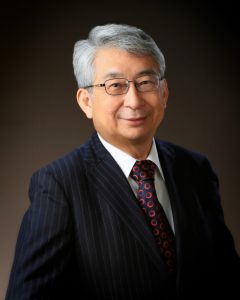Rudolf Vetschera
Professor of Business Administration, University of Vienna
25 Years of Research Using Web-based NSS:
What have we learned and still to learn?
The mid- to late 1990s brought the development of web-based Negotiation Support Systems such as Inspire (description published 1999) and later Negoisst (first description published in 2003). These systems were qualitatively different from previous approaches to negotiation support and thus opened up new possibilities for negotiation research.
First of all, since they were available on the web, they were easily accessible to researchers and participants all over the world. This made it possible to conduct cross-cultural negotiation experiments without having to rely on members of one culture being present at the home country of another culture (and thus having experienced the other culture). Furthermore, since all interactions between negotiators take place via the system, the system provides a comprehensive record of the negotiation. In contrast to early concepts of negotiation support, this not only refers to offers, but also all communication between negotiators, thus bringing together formal, issue-oriented, and communication oriented streams of negotiation research. Finally, due to their easy use and popularity, these systems provided researchers with much larger samples of negotiations than on-site experiments.
In this paper, we take stock of research that has been conducted using such web-based systems in the last decades with a particular focus on results that were possible because of the comprehensive negotiation records provided by web-based NSS. We furthermore address
challenges that still remain for research and discuss possibilities for future development.
About Professor Vetschera:
Prof. Vetschera studied Economics and Information Systems at the University of Vienna and the Technical University of Vienna. He was full professor of business administration at the University of Konstanz, Germany before his current position and had visiting positions among others at the Wharton School and Université de Toulouse 1.
His main research interests are in decision making, in particular, group decisions and negotiations and decisions under incomplete information, combining both prescriptive analytical models and empirical research. He has published three books and more than 130 refereed papers in journals and collective volumes. In 2012, he received the Section Award of the INFORMS Group Decision and Negotiation section and was president of the section from 2019-2021.
Jin Sato
President of the Japan Society for International Development
The Centrality of Intermediaries:
An organizational sketch for a world without conflict
The long-lasting and brutal conflict in Ukraine reminds us that once conflict escalates, the wisdom to stop it suddenly seems to elude us. However, there are ways to limit the likelihood of such escalation from intensifying. This brief talk focuses on the role of intermediary organizations and examines how, at times, they become instruments of state power while, at other times, they function as a basis of an autonomous body to deter centralization of power in a conflict situation. I will draw examples from a range of field experiences in Asia, from despotic systems in Southeast Asian dictatorships to more subtle forms of violence and inequality. The aim of my talk is to reexamine the values inherent in modernization and development that have emphasized individual rights and freedom at the expense of intermediary groups which I think should be restored and nurtured in a newly configured globalization.
About Professor Sato:
Jin Sato is a professor at the Institute of Advanced Studies on Asia, the University of Tokyo. He specializes in development studies with a specific focus on the politics of natural resources and foreign aid in the context of Southeast Asia. He served as a visiting professor at the School of Public Policy at Princeton University from 2016-2020 where he taught about the dilemma of prioritizing the environment and development in Asia. He is a Special Adviser to the President of the University of Tokyo and a Deputy Director of the Institute for Advanced Studies on Asia. Prof. Sato currently serves as the editor-in-chief of the International Journal of Asian Studies from Cambridge University Press. He has publications in leading journals such as World Development, Journal of Development Studies, Sustainability Science, along with 6 single authored books in Japanese. He was awarded the Japan Academy Medal in the field of humanities and social sciences in 2013. He holds an MPP from the Kennedy School at Harvard University and a Ph.D. in International Relations from the University of Tokyo. His talk will highlight some ideas from his most recent book, 『争わない社会 (A World without Conflict)』from NHK Books published in Japanese.
Kiyoshi Kobayashi

Professor Emeritus of Kyoto University, and currently Distinguished Professor of Graduate School of Management, Kyoto University.
Hybrid Society: What will come next after Covid-19?
Recent advances in ICT technology have developed virtual modes of communication. We now live in a world where the real and virtual worlds intersect with each other. Furthermore, the Corona disaster has led to the introduction of telework and online conferencing on a global scale at a rapid pace. This is a historic event that should be called the online revolution.
The evolution of a smart society will increasingly deepen the differentiation between the two worlds of real and virtual society, and IoT technologies have the potential to interconnect systems that have developed in a decentralized manner and to realize the systemization of systems. This will be realized through the systemization of social systems by systematized infrastructure systems and the humans who use them. The evolution of society will be brought about by the ubiquity of these combined systems.
This study points out that a hybrid society consisting of real and virtual spaces is constituted by two basic principles: the duality of spatial fixity and universality of capitalization. Human behavior in real space is constrained by physical conditions. It is ultimately only the individual in real space that collects information on cybernetic avatars’ behaviors in virtual space and controls it. In this study, we discuss the basic principles underlying the freedom of human behavior in the hybrid world and the role of social capital in supporting the coordination of real and hybrid spaces in the hybrid world.
About Prof Kobayashi:
He was Professor of Infrastructure Management of Graduate School of Management and Professor of Planning and Management Theory of Graduate School of Engineering, Kyoto University. He was Dean of Graduate School of Management for the period of 2010-2012. He is a world known researcher in the fields of Urban and Infrastructure Management and Economics and a recipient of several awards including the Distinguished Research Awards by Japan Society of Civil Engineers, Fellow Awards by RSA International, and Awards by the Japanese Minister of Land, Infrastructure, and Tourism, the Danish Minister of Environment as well as by the Vietnamese Minister of Education. He is President of Japan Association of Asset Management, of Global Muslim tourism Association as well as of Kansa Airport Research Association. He is the former President of Japan Society of Civil Engineers, of Global Business Society and of the Applied Regional Science Conference and serves on the editorial boards of international journals including the American Society of Civil Engineers, Annals of Regional Science, the series editor-in-chief of the Journals of Japan Society of Civil Engineers and the Journal of Applied Regional Science. Currently, he is a member of National Land Development Council of Japan, Transport Policy Council of Japan, and Science Council of Japan. He was an adjunct professor of 10 oversea universities and a visiting fellow of international organizations of IIASA, OECD, WHO, and World Bank, etc. He is the author and co-editor of 70 books and over 500 academic reviewed papers.
L. Alberto Franco

Professor of Management Sciences at Loughborough Business School, Loughborough University
Unpacking the ‘black box’ of facilitated modelling
There is a long and well-established tradition of model-driven group decision support developed within operational research (OR), and often referred to as the facilitated modelling (FM) approach. Through the provision of modelling and facilitation support, FM aims to enable the effective differentiation and integration of group members’ multiple, and often contrasting, perspectives about a situation of mutual concern. If successful, FM helps group members develop a better understanding of the situation, and reach agreements about how to respond to the situation. In this keynote, I take stock of what we know about a collection of OR methods that are most representative of the FM approach, first by describing their shared characteristics regarding technology and process, and then reviewing their use in practice. Then I present a framework for the study of FM practice, and draw on my own research to illustrate critical aspects that typically remain hidden in mainstream FM publications (e.g. affordances, epistemic motivation, information-rich conflicts, micro-level accomplishments). I will end the keynote with a discussion of some areas of work that deserve special attention for the continuing advance of the FM approach as a field of practice and research in group decision and negotiation.
About Prof. L. Alberto Franco:
He is Professor of Management Sciences at Loughborough Business School, Loughborough University (UK). He has served as Head of the Management Science and Operations Group, and as Associate Dean (Teaching). With extensive research and consulting experience of working with teams in the health, transportation, construction, defence and local government sectors, Prof. Franco undertakes research that examines how individual and group behaviour affects, or is affected by, the use of structured decision processes that use facilitation and external representations as support mechanisms. He has published in the fields of group decision and negotiation, operational research, management, risk analysis, management, and leadership. Additionally, Prof Franco has been delivering executive education courses globally for more 20+ years, in locations across Europe, North and South America, and South East Asia. A recipient of the EURO Excellence in Practice Award, he currently serves as Associate Editor of Group Decision and Negotiation, and Chair of the European Working Group on Behavioural OR. Prof Franco gained his PhD in Operational Research from the London School of Economics and Political Science.

